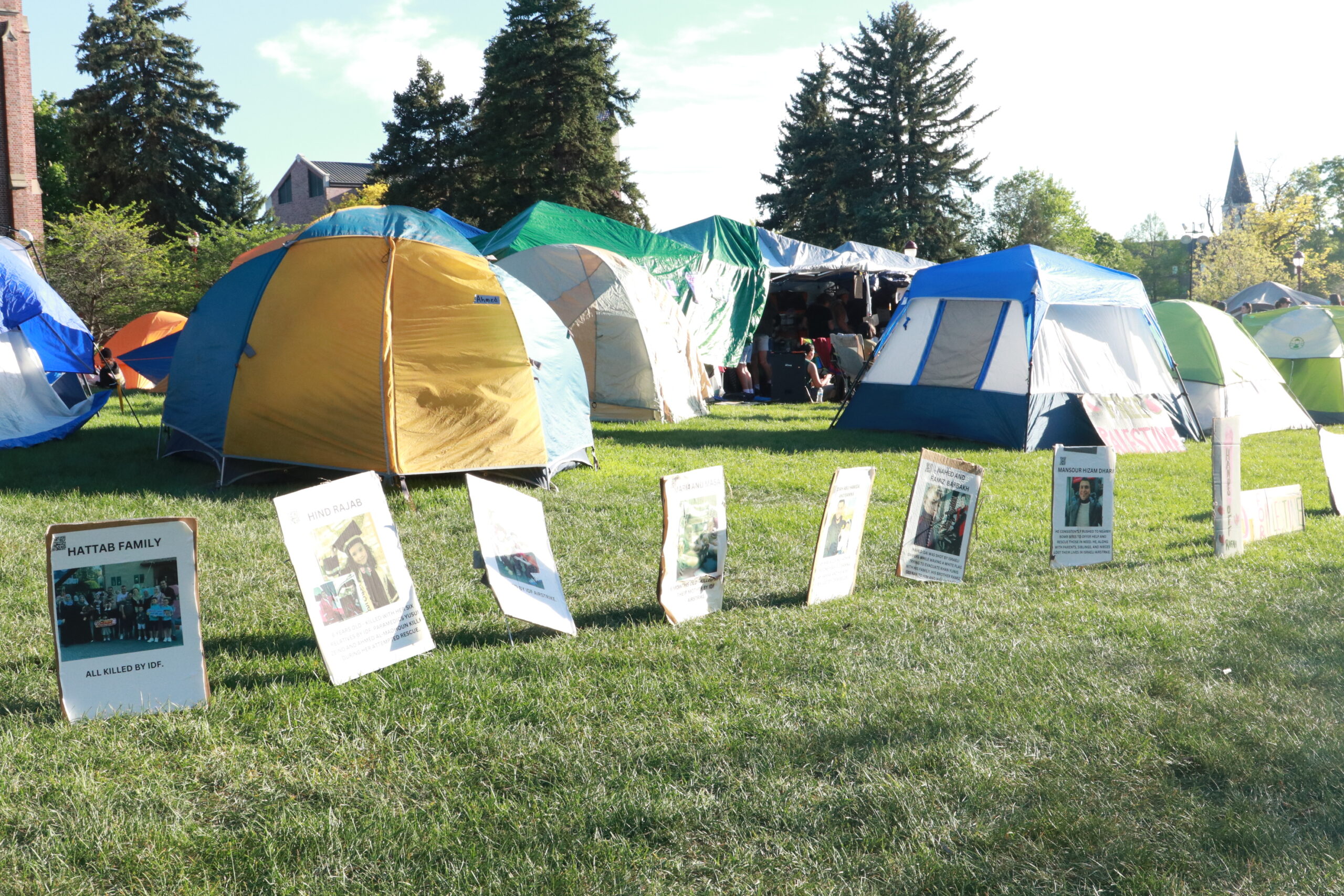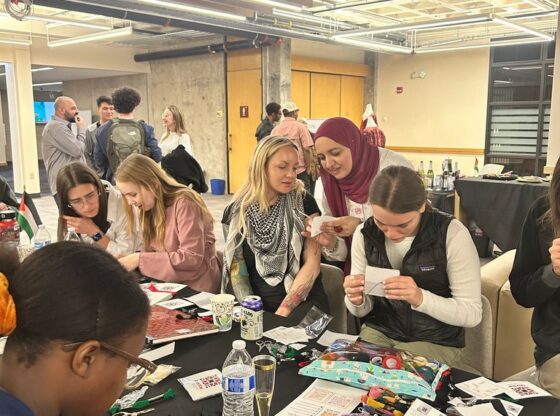 Photo by: Margie Thompson
Photo by: Margie Thompson
Associate Professor Margie Thompson covered a protest against the Central American Free Trade Agreement or CAFTA in Costa Rica for Feminist International Radio Endeavour also known as FIRE. The station reports on issues affecting women all over the world in both Spanish and English.
The protest called “The Power of No” was held on Sept. 30 and drew hundreds of thousands of people into the streets of San Jose to have their voices heard. Conservative estimates say the event drew more than 100,000 people while FIRE estimates the number was closer to 300,000.
The small country was the only one in Central American that had not ratified the agreement until Monday when voters passed the referendum by a tiny 1.6 percent margin.
Thompson said it was overwhelming to see the power of the protest.
“It was so exciting to see hundreds of thousands of people coming from all over the country,” Thompson explained “They had the old and young, kids and families, indigenous peoples, unions and students. It was just great to see democracy in action.”
A grassroots campaign, largely run by women, has been behind the movement.
It has been extremely successful in drawing attention to CAFTA and getting citizens mobilized against the measure that they say is unfair and will have a negative impact on the country, Thompson said.
CAFTA will engage Central American countries in more liberalized trade polices with the U.S., but there are concerns that other trade agreements, like the North American Free Trade Agreement or NAFTA, have done more harm than good.
Those in favor claim that CAFTA will help bring people out of poverty and have a positive impact on the Costa Rican economy.
While the opposition says that it gives American multinational corporations the ability to override many state laws including Costa Rica’s strict environmental regulations, and it will have a negative impact on the people that it claims to help.
Thompson described how many Costa Rican’s were apprehensive by the governments push to sign the agreement as the country has recently had many problems with government corruption.
Two of their past presidents are currently in jail and a third is awaiting extradition. The cases of corruption involve bribes and illegal contracts with foreign corporations.
CAFTA seems to have an eerily familiar ring.
The campaign against the agreement has largely been created by a village-to-village and door-to door type of movement.
Thompson has been impressed with its effectiveness.
“It’s exciting to see the women be such a big part of this. They are really the leaders in this grassroots movement,” she said.
Besides traveling the country talking to citizens, women also host a radio program and have created huge quilt-like banners which citizens nation-wide have contributed to.
The day before the protest Women Against CAFTA held a number of events to educate an bring more attention to the demonstration.
There were discussions with women of other Latin American countries who talked about how NAFTA and CAFTA had been harmful to their countries and economies.
They also hosted a concert with female musicians from Honduras, Nicaragua and Costa Rica. Their performances were interspersed with videos by Costa Rican directors.
Thompson said the energy of the event was very moving and is disappointed by the passing of CAFTA. She covers events for FIRE every winter and summer break.











